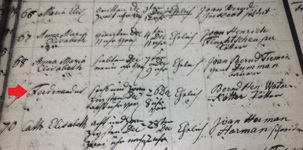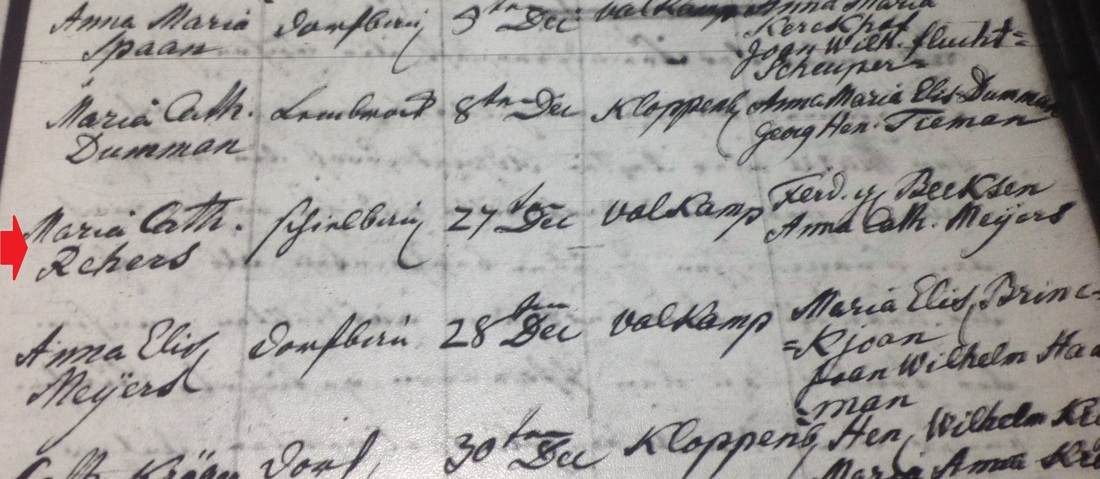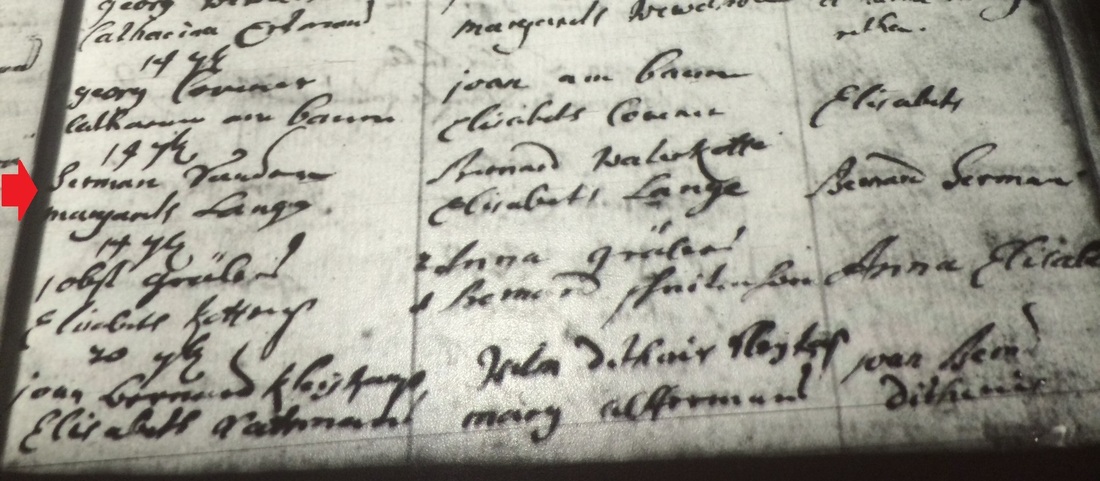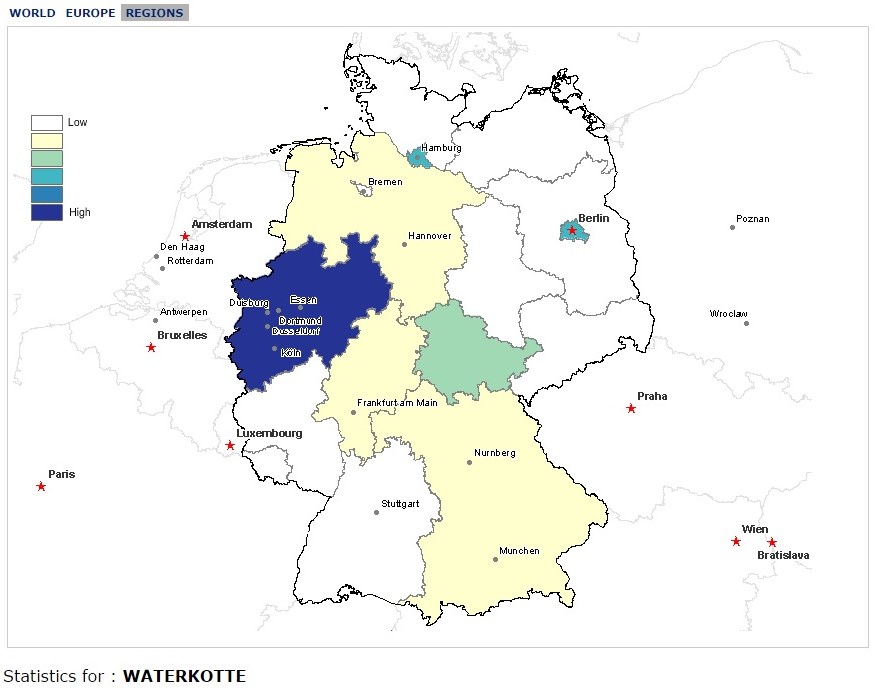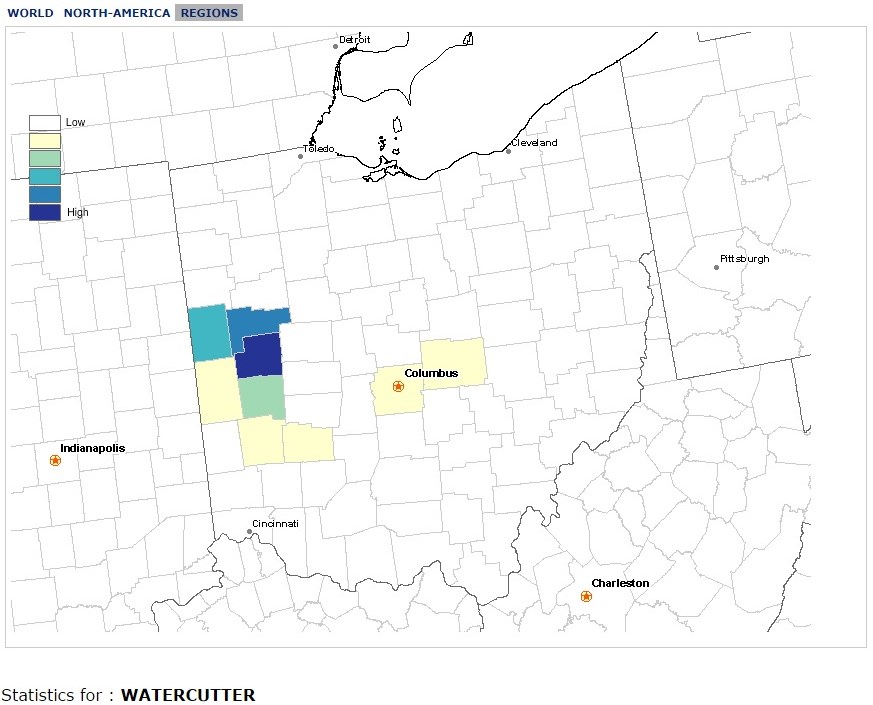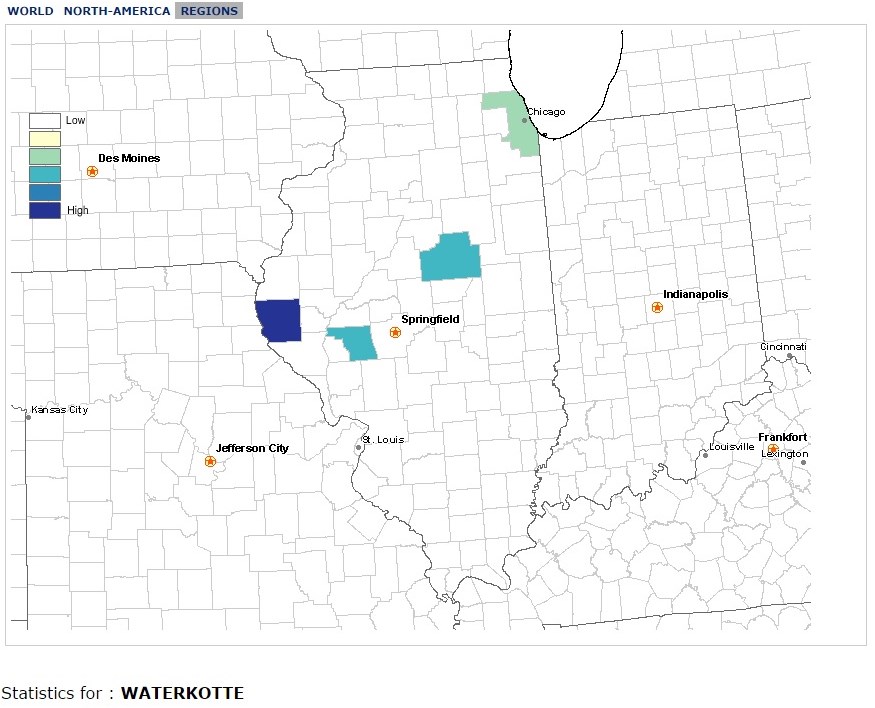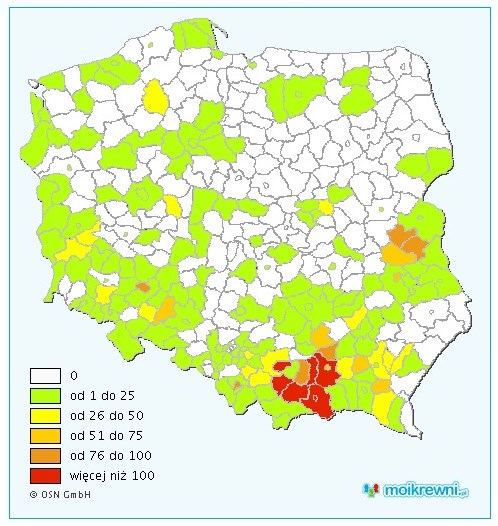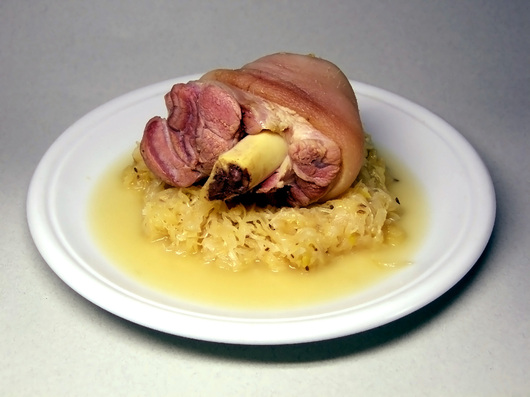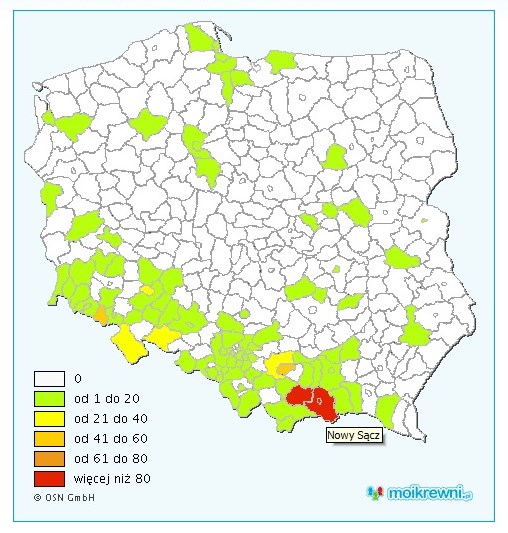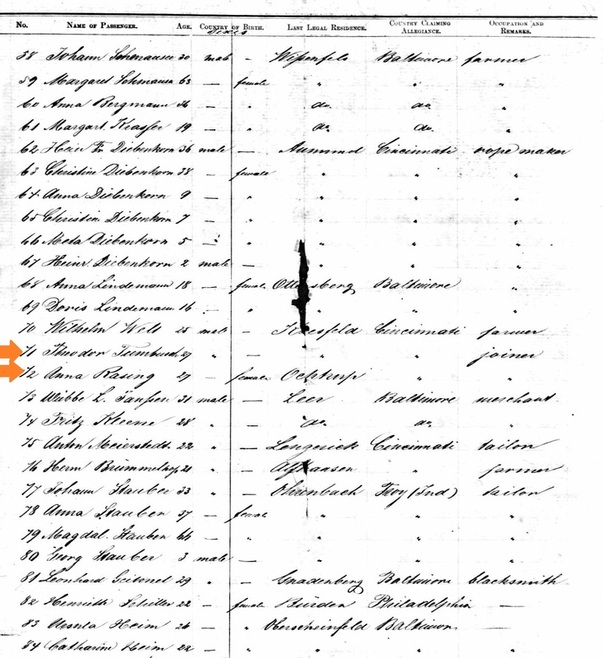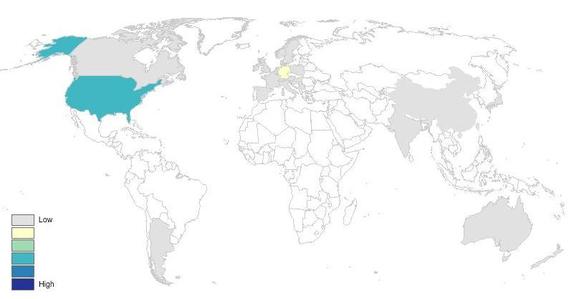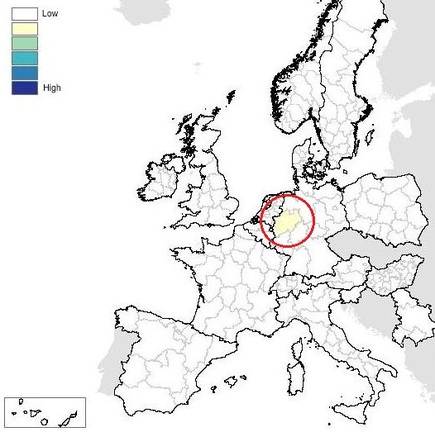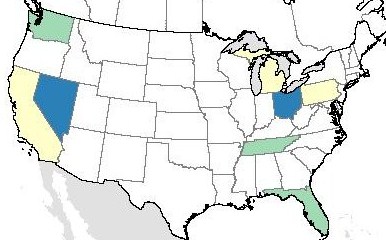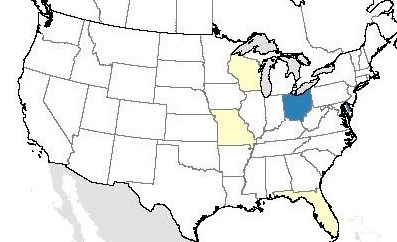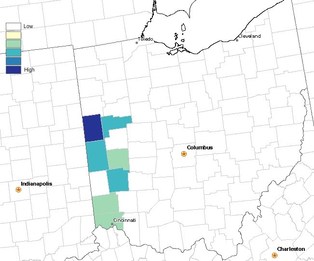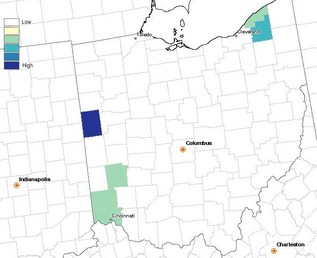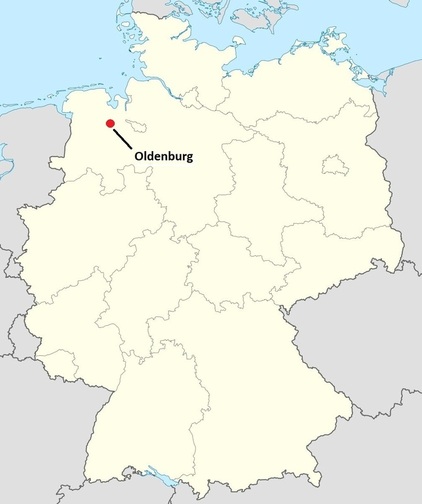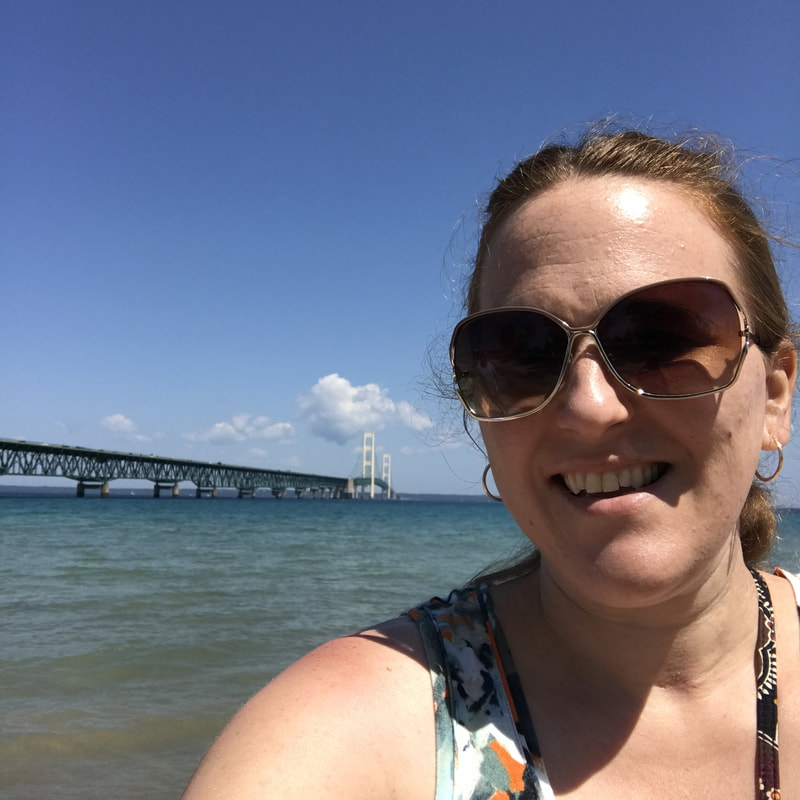I have been fortunate in researching the German roots of Watercutter family members, because they are listed in an online collection of family/local history records known as 'ortsfamilienbuches' (OFB). When I visited the Family History Library in Salt Lake City this past spring, I used the information from the online source to dig up microfilms of the original church baptism, marriage, death records for many of the family members, going as far back as the early 1700s. On the images below, click to see the baptism records for Ferdinand Waterkotte (1809), his father, Bernard Heinrich Waterkotte (1775), and his grandfather, Bernard Herman Waterkotte (1734). (On the bottom two records, the parents' names are listed in the first column, the godparents (sponsors) are in the second column, and the child's name is in the third column.)
I asked my question in the German Genealogy Facebook group to see if anyone more experienced than me had any insight into why the family name may have changed. I posted a photo of Bernard Herman's younger brother's baptism record, where the father is listed as Herman Sanders g. Waterkotte. One knowledgeable gentleman in the group told me that the 'g' stood for gennant, which means 'called.' He also explained that some people had two surnames; one acquired from the father in the traditional sense and another Hausname. The Hausname may have been acquired if a family had inherited from, bought or lived on some land of another family by that name OR perhaps if his mother married another man after his father died. INDEED, using the online OFB records, I found that Bernard Herman's mother, Margaretha Lange, did remarry in 1741. However, the man she married was named Jobst Heinrich Dalhoff. Margaretha had children with Mr. Dalhoff and those children's surnames were STILL Waterkotte. This makes me conjecture that the Waterkotte surname came from the land or house they were living on/in. So, the descendants of both Herman Sanders and Jobst Heinrich Dalhoff took the surname of Waterkotte and carried it forward in subsequent generations. In fact, by clicking on some of the other names on this list, you'll see that quite a few people with the surname Waterkotte did not have a father with that name. (A Kötter, by the way, is a 'cottager' who probably had a small amount of land for gardening/farming and maybe a few livestock.)
Today, Waterkotte is not a common name in Germany, and its occurrence is still concentrated in Nordrhein-Westfalen, shown in the dark blue:
Baptism Record of Bernard Heinrich Waterkotte: FHL microfilm 801427, Kirchenbuch: Katholische Kirche Ostbevern, Taufen 1753-1805
Baptism Record of Bernard Herman Waterkotte: FHL microfilm 801427, Kirchenbuch: Katholische Kirche Ostbevern, Taufen 1718-1752
©2014, copyright Emily Kowalski Schroeder
